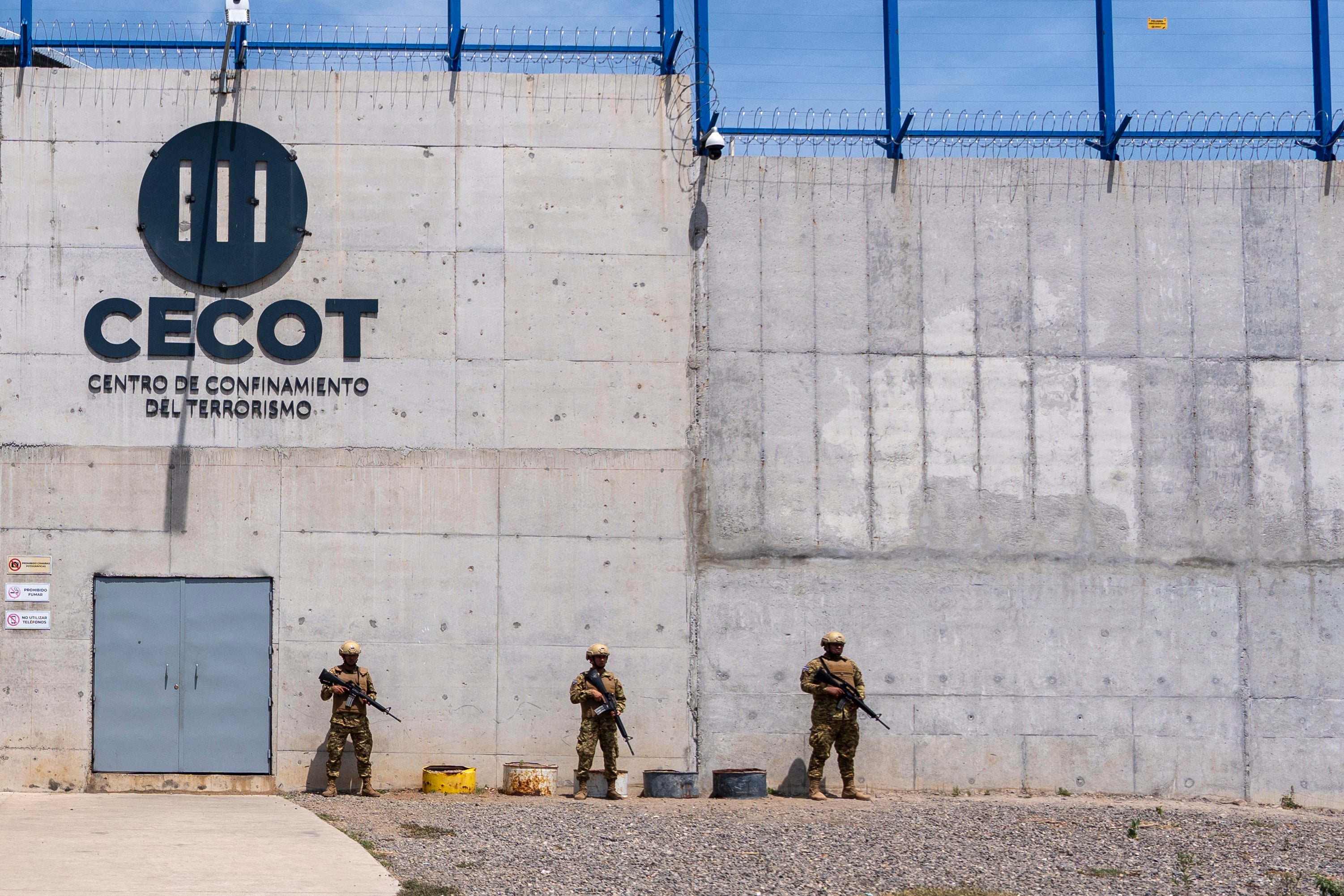Dozens of Venezuelans that Donald Trump had deported to a brutal prison in El Salvador have been sent back to their home country under a bilateral deal to secure the release of Americans locked up in Venezuela.
Under the deal, more than 200 Venezuelans summarily deported to El Salvador’s Terrorism Confinement Center, or CECOT, were flown to Caracas on Friday. In exchange, the Venezuelan government delivered five U.S. citizens and five lawful permanent residents back to American custody.
The prisoner swap follows the Trump administration’s allegedly bungled efforts to try to release Americans imprisoned in Venezuela in exchange for sending home dozens of men that the administration accused of being Tren de Aragua gang members.
The release of Venezuelans who have been imprisoned at the facility for more than four months could also potentially expose what they experienced inside and what conditions are like for hundreds of people languishing inside the notorious prison.
So far, only one person deported from the United States to CECOT has made it back.
Kilmar Abrego Garcia, a Salvadoran father who was living in Maryland, was abruptly returned to the United States after a weeks-long court battle over his arrest and removal. Administration officials initially said he was deported by mistake before repeatedly insisting the U.S. government no longer had jurisdiction over him. Last month, he was returned to face a federal criminal indictment in Tennessee accusing him of smuggling immigrants across the country.
A recent court filing detailed for the first time what current conditions at the Salvadoran prison are like for the dozens of Venezuelan immigrants still inside.
Abrego Garcia was subject to “severe beatings, severe sleep deprivation, inadequate nutrition, and psychological torture” at the facility, according to his attorneys.
El Salvador President Nayib Bukele confirmed the prisoner exchange on Friday afternoon, saying his administration “handed over all the Venezuelan nationals detained in our country, accused of being part of the criminal organization Tren de Aragua.”
The exchange includes “a considerable number of Venezuelan political prisoners, people that regime had kept in its prisons for years, as well as all the American citizens it was holding as hostages,” he said.
Secretary of State Marco Rubio said Americans are “on their way to freedom” as he thanked the State Department and Bukele’s administration “for helping secure an agreement for the release of all of our American detainees, plus the release of Venezuelan political prisoners.”
Despite the Trump administration’s claims that deportees sent to the notorious maximum-security prison were no longer the responsibility of the United States, officials have been using them as a bargaining chip in a weeks-in-the-making prisoner exchange.
But those competing negotiations, led by Secretary of State Marco Rubio in one camp and presidential envoy Richard Grenell in another, had appeared to fall apart until Friday’s alleged breakthrough.

Their return had been a long-standing demand of Venezuelan President Nicolas Maduro, who has accused Nayib Bukele’s regime and the Trump administration of committing human rights abuses by locking up immigrants in the Salvadoran prison, labelled by humanitarian groups as a “tropical gulag” and concentration camp.
Roughly 250 Venezuelans were deported to El Salvador’s brutal Terrorism Confinement Center beginning March 15, when Trump invoked a centuries-old wartime law that labelled alleged Tren de Aragua gang members “alien enemies” who could be removed from the country without due process.
The White House claims that Maduro directed an “invasion” of gang members into the country — contradicting reports from U.S. intelligence agencies.
Government attorneys argued that the United States no longer has jurisdiction over deportees after ignoring emergency court orders that blocked their arrival in El Salvador. But Salvadoran authorities recently told the United Nations that the “legal responsibility for these people lie exclusively” with the U.S. government.
Bukele had first hinted at prospects of a “humanitarian agreement” with the countries in April, weeks after agreeing to imprison U.S. deportees in CECOT. Venezuelan officials, meanwhile, had dismissed the proposal and demanded the return of their “kidnapped” countrymen.
Several federal judges have temporarily blocked immigration officials from deporting more Venezuelan migrants under the Alien Enemies Act, teeing up yet another Supreme Court battle challenging the president’s sweeping executive actions related to his anti-immigration agenda.
Lawyers for deported immigrants inside CECOT have argued for class-action relief, which would give them an opportunity to challenge allegations against them in court.
“Significant evidence has come to light indicating that many of those currently entombed in CECOT have no connection to the gang and thus languish in a foreign prison on flimsy, even frivolous, accusations,” District Judge James Boasberg wrote last month.







